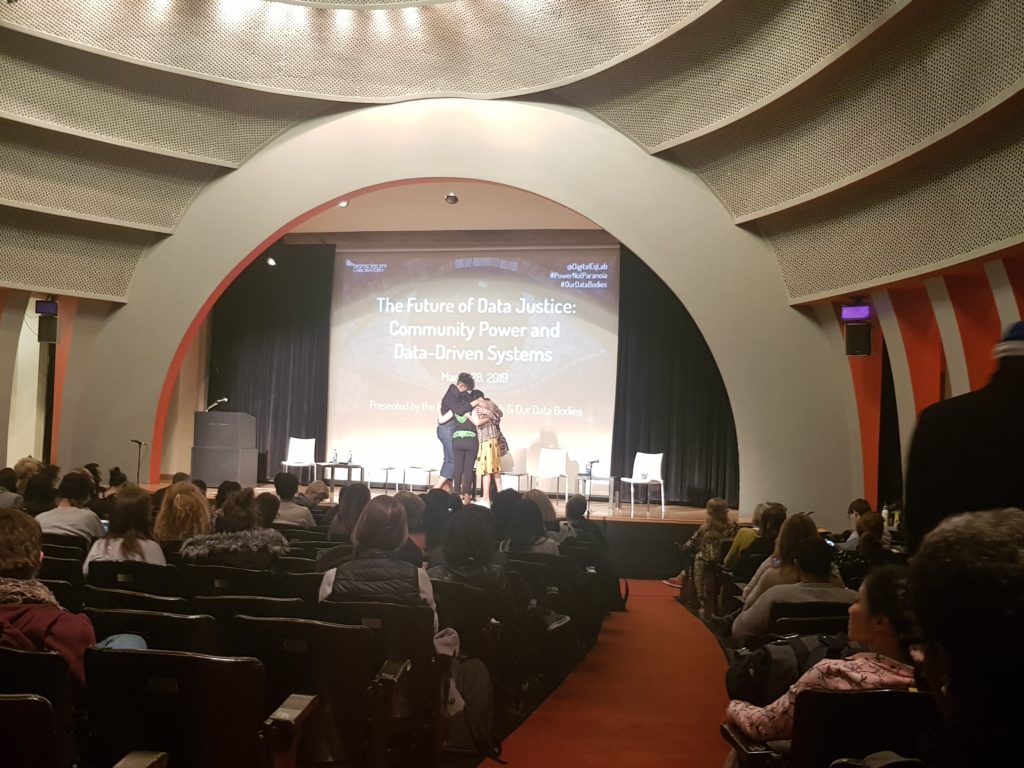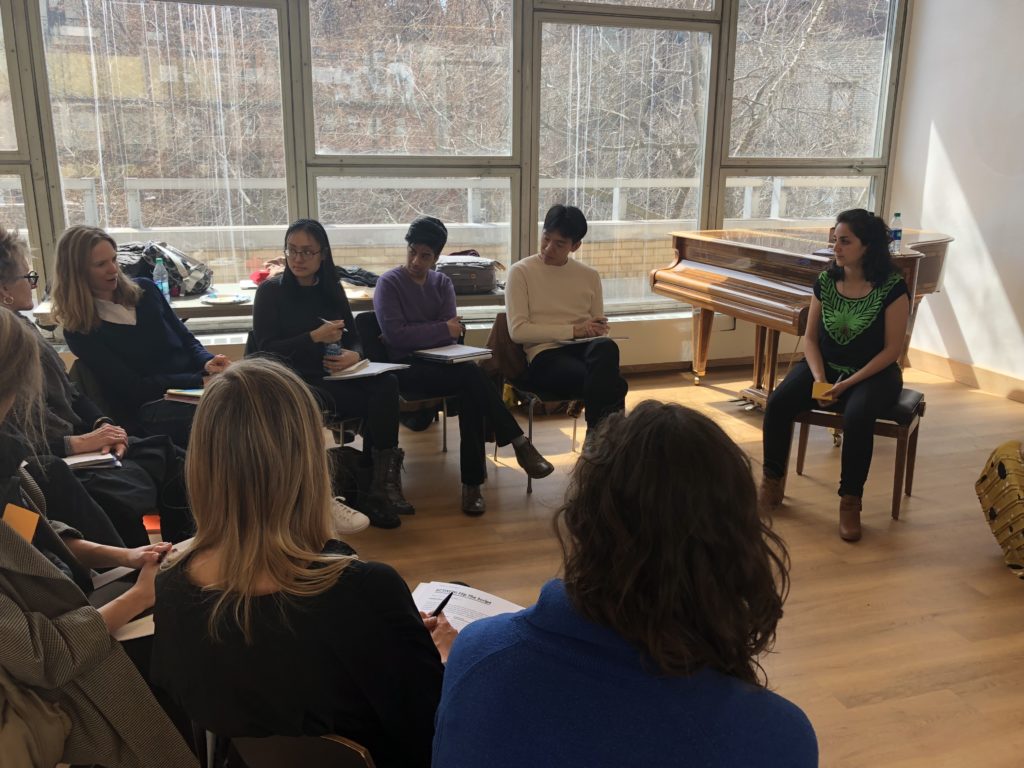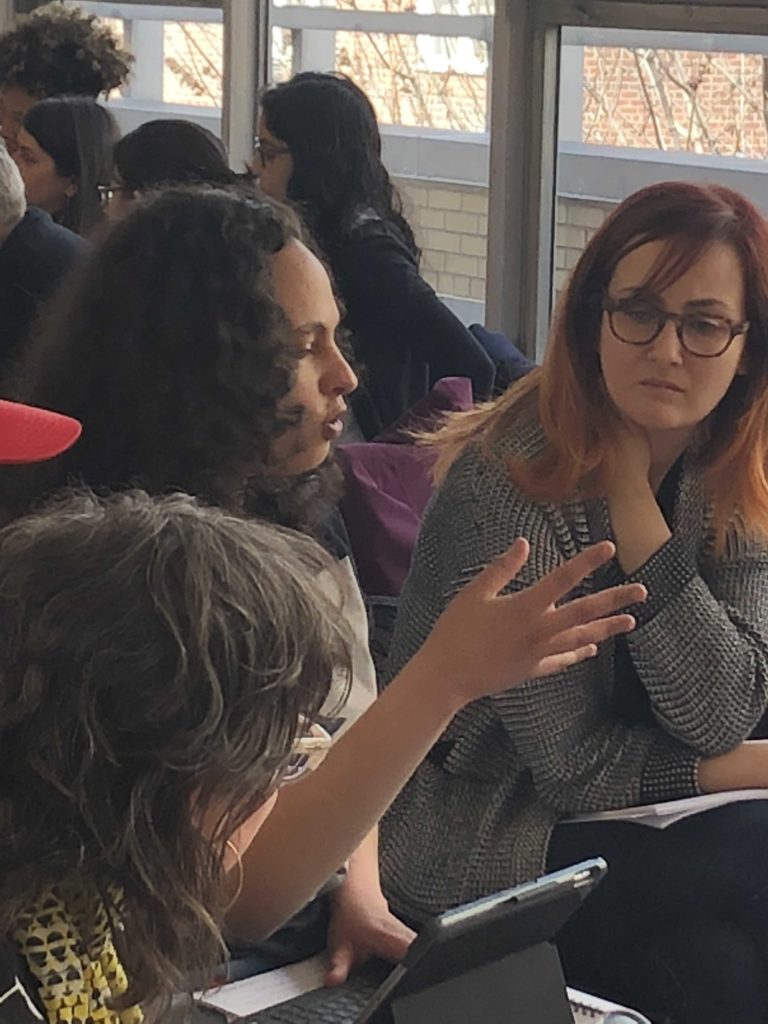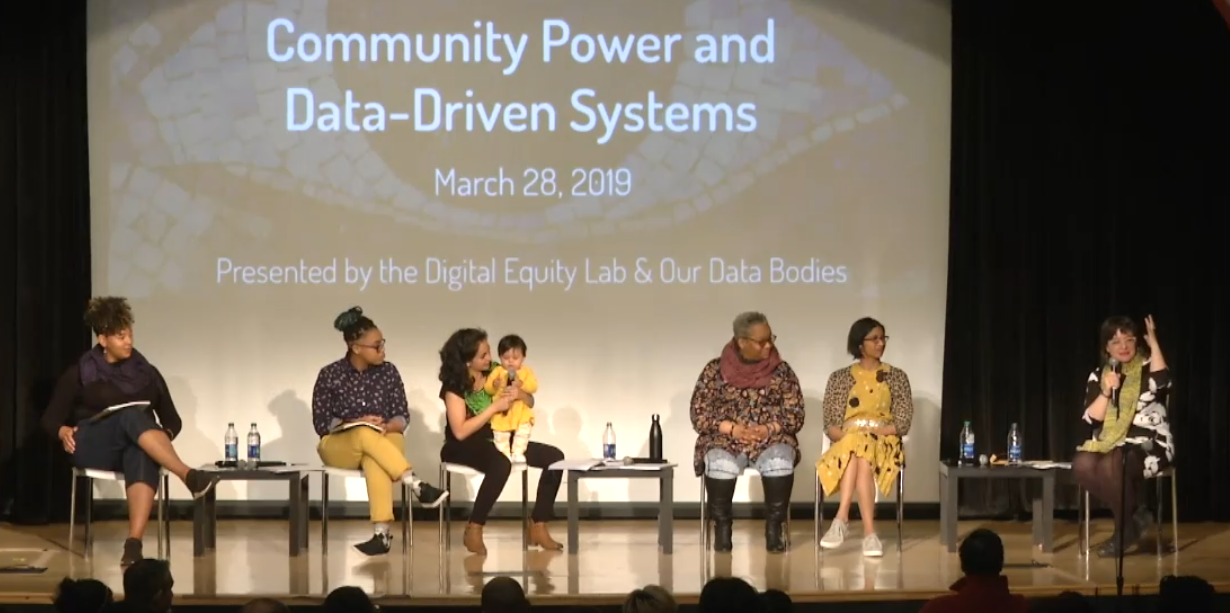Launching the Digital Defense Playbook at the Digital Equity Lab in NYC
By Kim M Reynolds and Seeta Peña Gangadharan
In March 2019, Our Data Bodies celebrated the publication of the Digital Defense Playbook, a popular education resource that captures ODB’s three-year journey in talking with residents in the most marginalized neighborhoods of Charlotte, Detroit, and Los Angeles.
This pop-ed resource outlines ODB’s method of storytelling-as-research and centers the lives of those marginalized by factors of race, class, sexual orientation, gender expression, immigration status, ability, and more.
The Playbook aims to bring to life the project’s commitment to grassroots organizing, community building, and knowledge creation. Its tools, tips, and reflections are designed to help communities and community leaders get people thinking and relating their stories about data collection, data-driven systems, and impacts on everyday life.
Reflecting on the importance of this work, Our Data Bodies held a public discussion and workshop, hosted by The New School’s Digital Equity Laboratory in New York City on March 28, 2019.

In “The Future of Data Justice: Community Power and Data Driven Systems” (watch here), conversation unfolded against the ideas of power and refusal. A spirit of refusal, said Seeta Peña Gangadharan, defines the strategies and tactics of people interviewed by Our Data Bodies (see also Ruha Benjamin’s discussion of informed refusal). Reflecting on the past and present of Our Data Bodies’ work, Tawana Petty, Mariella Saba, Tamika Lewis, and Kim M Reynolds reflected on local and global contexts of surveillance and systems of social control.
Tawana Petty remarked on the ways in which Detroiters feel surveilled despite living in a city that still lacks broadband for 40% of the population. She highlighted the ways to confront surveillance by bringing Detroiters together to analyze information from the city’s open data portal and to build community knowledge.
Mariella Saba drew attention to material and historical structures of power, drawing connections between the Lenape, on whose land The New School is built, and two people connected to ODB in Los Angeles, Hatman, a Skid Row resident who passed away, and Pedro, who was ensnared in police violence and court system.
Tamika Lewis focused on surveillance and attempts to stifle social, economic, and racial justice organizers in Charlotte, including those who participated in Charlotte’s Uprising. They noted collective efforts by organizers to be anticipate and be prepared for surveillance and intimidation in community-based work.
Kim M Reynolds stressed the ways in which the stories of residents in Los Angeles, Detroit, and Charlotte serve as precedents of ways to cultivate a system of knowledge that centers marginalized people, building power not paranoia.
Building from these reflections, Greta Byrum, co-director of the Digital Equity Laboratory, asked ODB about humanizing the stories of marginalization. Audience members posed practical questions, giving Mariella Saba, Tamika Lewis, and Tawana Petty the opportunity to elaborate their on-the-ground experience of stopping implementation of harmful surveillance technologies and practicing safety and respect when gathering information from community members.
Audience members asked ODB how they see their work in an international setting. The team acknowledged that strength lies in the specificity of ODB that allows the team to understand the specific texture of three US cities and highlight differences and similarities in structural realities that play out in other contexts, such as London, England or Cape Town, South Africa where team members Seeta Peña Gangadharan and Kim M Reynolds are based.
More than two hundred joined the public discussion in person.
Following the public discussion, the ODB team held a one and a half hour long “train the trainers” session that had close to forty people in attendance. In this session, three activities from the Digital Defense Playbook ran concurrently: Flip the Script, Let’s Make a Data Stream, and What’s in Your Wallet?

Each session lasted thirty minutes, with the ODB team rotating between the three groups. The workshop gave the ODB team time to connect with other community organizers and people interested in data justice, but also participants the ability to cultivate relationships and connections amongst themselves.

At the conclusion of the event, one participant shared:
I just want to tell you how fortunate I feel for being able to participate in your event today… The workbook is fantastic! The whole day left me feeling charged.

